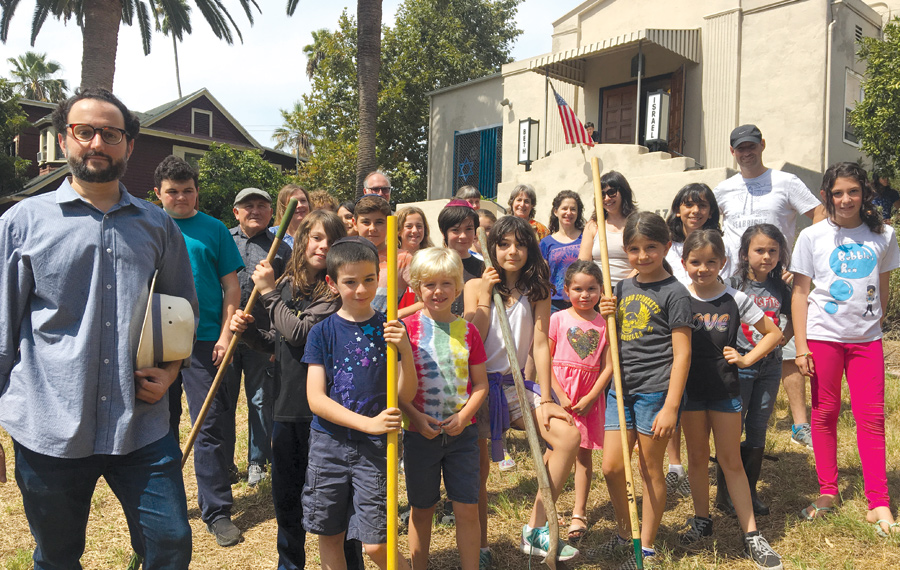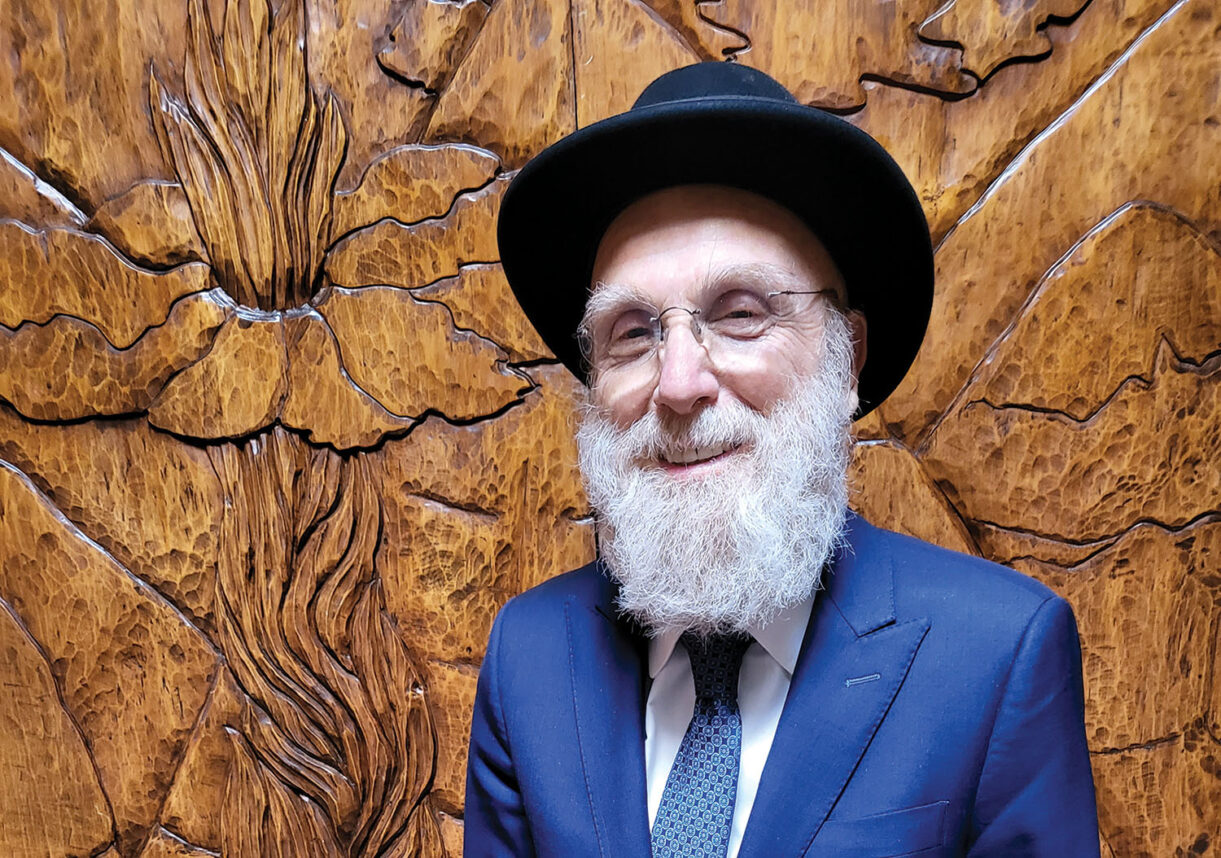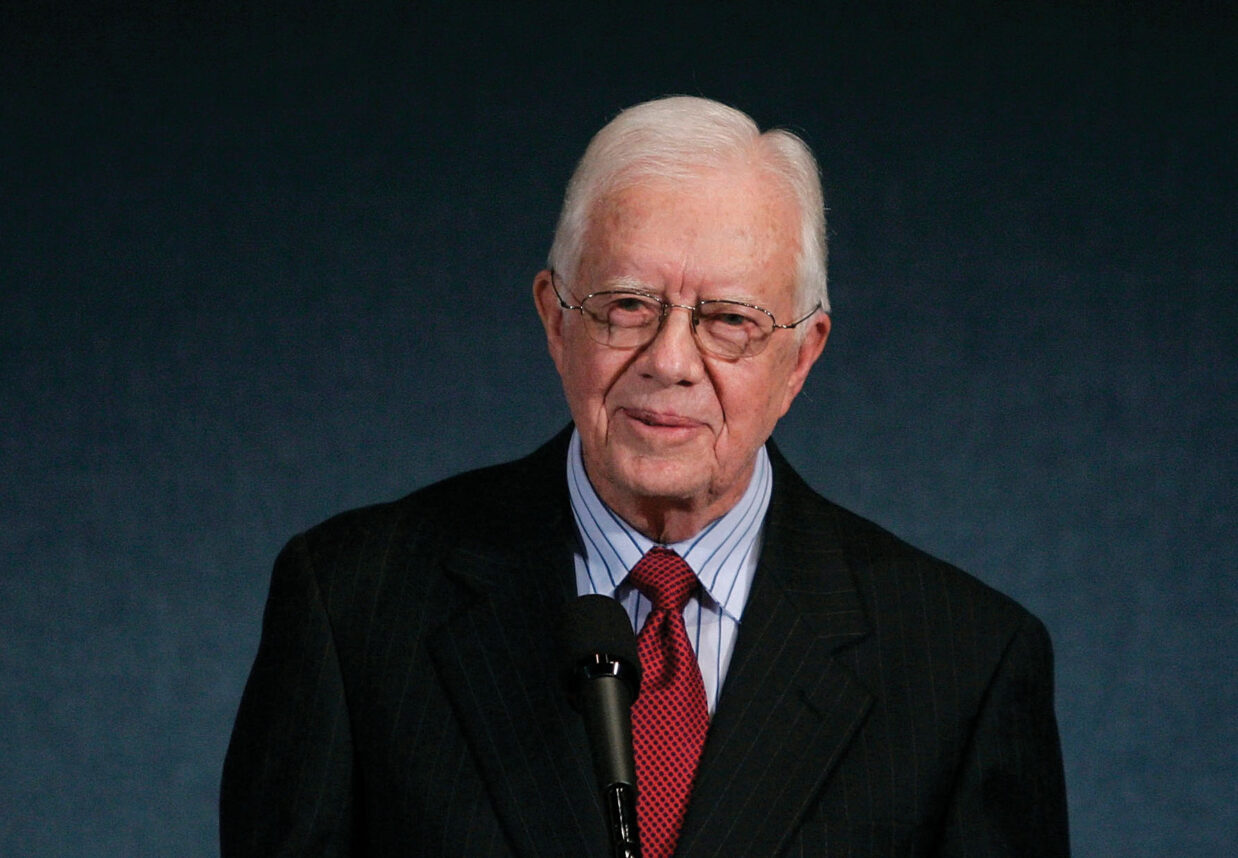
Highland Park is filled with historic buildings, hilly roads, vintage clothing stores, art galleries and vegan eateries. Also tucked away in this Eastside enclave — which is attracting a diverse group of Angelenos — is a 90-year-old, forward-thinking synagogue.
Temple Beth Israel (TBI) is a self-described haimish synagogue that is also egalitarian and inclusive. It began as a Conservative synagogue in 1929, but today is unaffiliated.
Rabbi Jason Rosner, who was hired this past May, was ordained at the Reform Hebrew Union College. Although he leads the congregation, at TBI, everyone is encouraged to take part and introduce new initiatives.
“We really run on the principle that our community belongs to our members,” Rosner said. “We address the questions that are on the minds of our membership like climate change and sustainable transportation.”
To that end, TBI offers the CoPious Box, a box that contains organic produce from local farmers and is available at the synagogue, or for delivery, on a weekly basis for TBI members and the wider community.
“We understand the cost of living is high, so it’s one way to keep the cost of living lower and address the need for affordable, healthy food to fight diabetes and the like,” Rosner said.
TBI has a garden with an etrog tree, and recently installed solar panels that were dedicated by two synagogue members. On Sukkot, TBI will host a single-use plastic reduction class in the sukkah, and hopes to set up a compost bin on-site.
Having all these environmental programs in place commemorates Judaism’s emphasis on ecology, Rosner explained, noting that in Deuteronomy 20:19, it says not to cut down fruit trees when besieging a city. He added that the Mishnah and Talmud are full of agricultural laws, and in the Mishneh Torah, Kings and Wars, 6:9-10, Maimonides instructs
us not to needlessly destroy nature or waste food.
“We are utilizing Jewish tradition, literature and art to address questions of ecology, halachah around business, asking questions like what is ethical investment and housing affordability, and its corollary, homelessness.”
— Rabbi Jason Rosner
“I believe the Jewish tradition perceives us to be living in a terrarium,” Rosner said. “We’re in a closed environment and we need to respect it. We have a strong tradition of ecology, but [also] there is this idea we are supposed to be fruitful and multiply and fill up the earth. We’re supposed to fill it up the way we do a terrarium, within the limits of what it can contain and respecting natural cycles. We’ll pollute it if we fill it up too much, so we have to find a balance.”
Along with the environmental initiatives, TBI offers weekly Shabbat morning services, first Friday Kabbalat Shabbat dinners, family Friday Shabbats, Torah classes for kids, and adult classes including memoir writing. Instead of tasking the clergy to create programming and activities, the shul’s members put forth ideas and make them happen.
“It is tremendously gratifying working with so many people who are volunteers and willing to put their time and energy into running this institution,” Rosner said. “I couldn’t ask for better partners.”
Because of TBI’s commitment to volunteerism and inclusion, members like Naama Haviv, the director of development and community relations for MAZON: A Jewish Response to Hunger, have found a home at TBI. Haviv, who grew up in a secular Israeli family, had never celebrated the High Holy Days until last year, when she went to TBI for Yom Kippur with her husband and daughter.
“Everybody at all levels of Judaism can experience a sense of community there,” she said. “They let me in on the process, and I am an otherwise secular Israeli. It’s very indicative of the experience at TBI.”
Even though Haviv has been working in the Los Angeles Jewish community for 10 years, it wasn’t until she went to TBI that she felt like she was truly part of it. “It’s this place where you can find your footing in a way that is difficult in L.A.,” she said. “It’s the kind of place where you can come up with an idea if you want to make it happen. If you need something, someone will point you in the right direction. There are dozens of other people trying to make projects happen, and it weaves together into this amazing community.”
TBI President and Social Action Committee Chair Raphael Leib echoed that sentiment, noting that whereas Jews may not be able to find a spiritual home in other parts of L.A., they can at TBI.
“We’d like to put northeast L.A. on the map within the wider Jewish community,” he said. “A lot of folks don’t think of northeast L.A. as a center of Jewish life. We want to change that. With all due respect to congregations on the Westside, there’s a huge sector of the Jewish community that is not represented and live near us. We want to make our voices heard and our presence felt.”
The welcoming attitude of the synagogue and its focus on members first has led to a jump in membership. According to Rosner, they’re in a growth phase, and they will likely have 200 to 300 members within the next several years. He sees more Jewish families coming to the neighborhood, and the synagogue is looking at opening a preschool.
In the future, Rosner said, they may even get historic landmark status, since TBI is considered a historical overlay building. “The synagogue has a sense of continuity, which is really nice in a city of newness,” he said. “It’s exactly what you might expect in Highland Park: historic architecture, non-hierarchical structure and very inclusive.”
For now, Rosner and the congregants are focused on community first, and putting on programming and initiatives they truly believe in.
“I’m happy to be in an environment that I feel is really dedicated to Jewish life and tradition, but through the lens of what it means to us in northeast L.A.,” Rosner said. “Tradition that is living and breathing and constantly being reinterpreted and applied. It’s not from the top down. We are utilizing Jewish tradition, literature and art to address questions of ecology, halachah around business, asking questions like what is ethical investment and housing affordability, and its corollary, homelessness.”






















 More news and opinions than at a Shabbat dinner, right in your inbox.
More news and opinions than at a Shabbat dinner, right in your inbox.